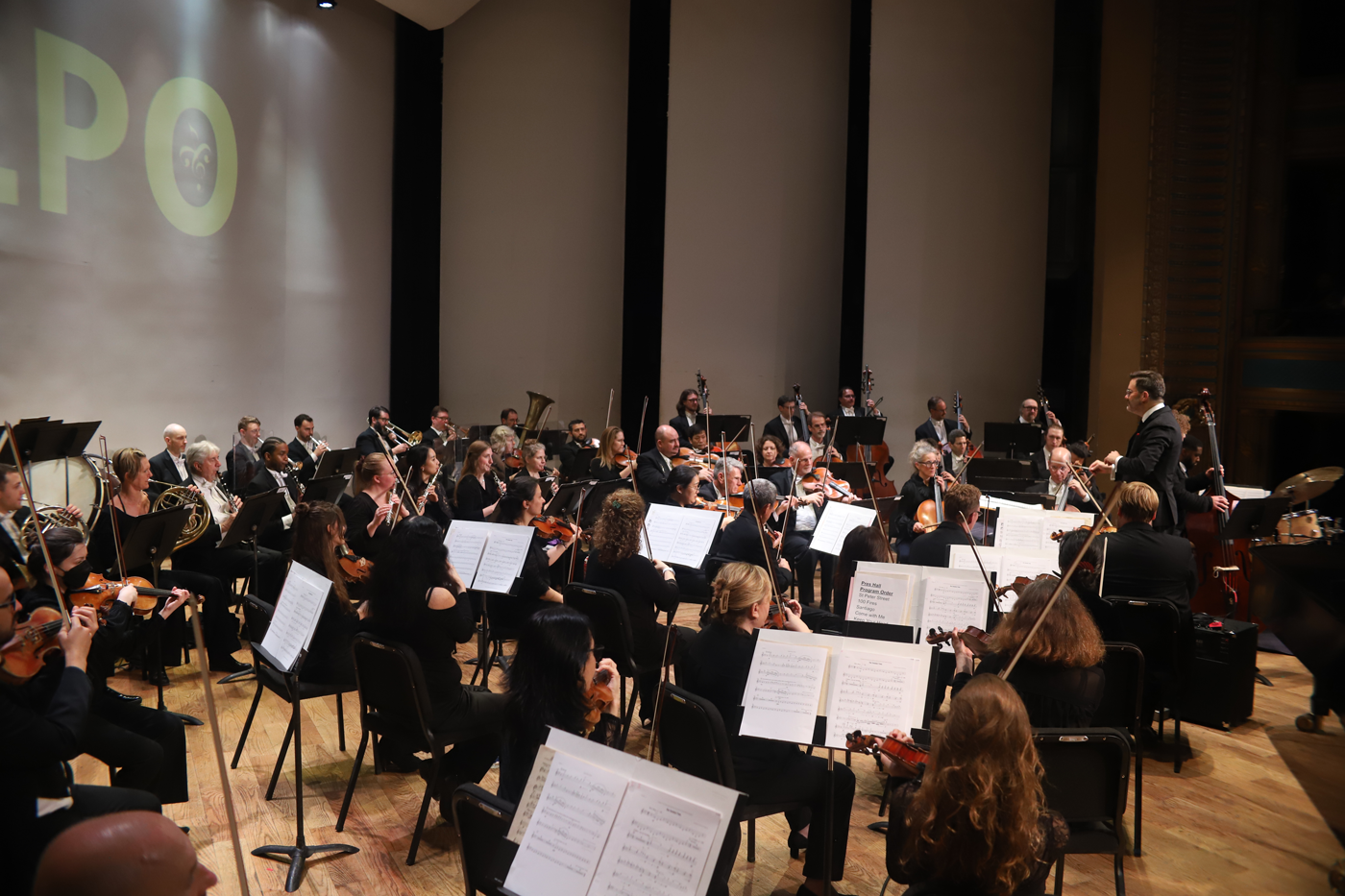
About the LPO
The Louisiana Philharmonic Orchestra (LPO) is dedicated to maintaining live orchestral music and a full-scale symphonic orchestra as an integral part of the cultural and educational life of the New Orleans area, the entire state of Louisiana, and the Gulf South region. Formed in 1991, the LPO is the oldest full-time musician-governed and collaboratively-operated orchestra in the United States.
The LPO offers a full 36-week season with more than 120 performances, including classics, light classics, pops, education, family, park, and community engagement concerts in New Orleans and across multi-parish areas. In addition, The LPO collaborates with and provides orchestral support for other cultural and performing arts organizations, including the New Orleans Opera Association, New Orleans Vocal Arts Chorale, New Orleans Ballet Association, Delta Festival Ballet, Musical Arts Society of New Orleans, and the Historic New Orleans Collection.
LPO Mission
The Louisiana Philharmonic Orchestra’s mission is to transform people and communities through music.
Artistic Vision
Steeped in history yet focused on innovation, the Louisiana Philharmonic Orchestra (LPO) is the only full-time collaboratively governed and operated orchestra in the United States. Rooted in a culturally diverse community with a two-hundred-year orchestral music tradition, the LPO sets the standard for orchestral programming and performance in Louisiana. For our sixty-seven musicians, achieving the highest level of artistry is integrally linked with a deeply personal investment in our organization and our community. Our audiences hear, see, and feel the increased passion and enthusiasm that results from our musicians’ involvement in planning each performance.
As the only full-time professional orchestra in the state, we curate eclectic, expansive concert seasons presented in five municipalities across the Greater New Orleans area, and we provide education and community engagement programming serving a twelve-parish region. From intimate chamber music performances to exhilarating classics to dynamic pops presentations, the LPO produces a comprehensive spectrum of concert programming that balances boundary-pushing, exploratory repertoire with established masterworks.
The LPO celebrates the beginning of our second quarter-century as an essential contributor to the thriving artistic culture of southeastern Louisiana. We envision a future in which the orchestra is embraced as a defining element of our community—a unifying source of civic pride. Our orchestra will be known not only for our artistic excellence but also for our accessibility. We will continue to reinvigorate what it means to be a musician-governed orchestra, making greater use of an organizational structure that enables us to be adaptive and responsive to community needs. As we develop new generations of audiences, our concerts will continue to bring people together to share a life-affirming, transformative experience. The LPO will both anchor this community and help to build it.
LPO History
The LPO began in 1991 with nothing but sweat equity and a small amount of cash support from the orchestra musicians and a few donors. Formed after the collapse of the New Orleans Symphony Orchestra, the LPO’s sole initial goal was to maintain live, professional symphonic music in New Orleans.
To accomplish this goal, the LPO created a new organizational model. Typically, orchestras are governed by distant board members and administered with a top-down management approach in which musicians are often ignored. Such an organizational structure limits the artistic freedom and transparency of an orchestra, jeopardizing the musicians’ ability to positively impact their communities; indeed, this type of management structure contributed to the collapse of the New Orleans Symphony Orchestra. The LPO musicians knew they needed a new paradigm—one that empowered the musicians to direct all artistic, financial, and governance aspects of the orchestra. LPO musicians became stakeholders, taking on both governing and administrative roles and forming what is now our nation’s longest-standing musician-governed and collaboratively operated orchestra.
The LPO stands as a national model for orchestral organizational structure and effectiveness. The sole corporate members of the LPO are its full-time musicians. (In most nonprofit entities, including performing arts organizations such as orchestras, the directors or trustees of the entity are typically the corporate members.) As the only corporate members, the LPO musicians define in the corporate bylaws the composition of the LPO Board of Trustees (the Board).
The LPO, like all nonprofit corporations under 501(c)(3), exists to carry out its tax-exempt purpose for its community. The Board has the legal and fiduciary responsibility to the community to ensure that this occurs. Currently, the Board comprises up to 26 community members, elected by musician corporate members; 3 community members who have previously been elected by the musicians as life trustees; 5 voting ex officio community members (advocacy council chairs and presidents of support and volunteer groups); 2 non-voting ex officio members (the Music Director and the Chief Executive Officer); and 11 musicians (who are the only corporate members serving on the Board). Of the 11 musicians, 8 are elected by all musician corporate members, while 3 are ex officio (serving as chairs of the Concert, Personnel, and Education Committees of the orchestra).
Musicians, community trustees, and administrators collaborate to plan and administer all of the LPO programs and activities through participation on various committees. At present, one LPO musician serves as a part-time member of the administration. This role has been structured to focus on organizing and deploying musicians in the LPO’s audience development, philanthropic, and communications activities, as well as to facilitate orientations for new and newly tenured musicians to ensure that the next generation of LPO musicians develops a deep understanding the orchestra’s unique organizational philosophy and culture.
 (
(







